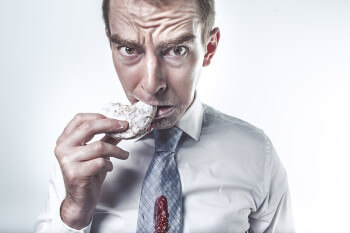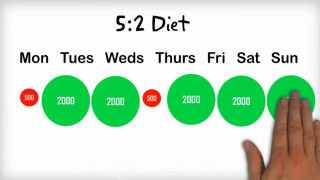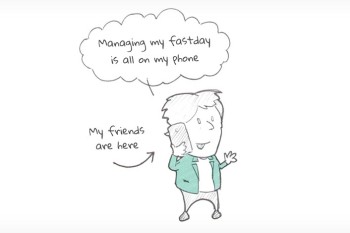Our first fasts are quite an experience, something we always remember and we certainly can learn a lot from them. Like any new experience, we don’t know what to expect before we start. Here are some of the surprises that may await you when you embark on an intermittent fasting journey – be they good, bad or ugly!
Part 2: The Bad
While there are some less desirable surprises when you start fasting, these are far outweighed by the good effects. You’ll be pleased to hear that not only will the below become much less of an issue when you’ve been fasting a while but there are also ways of handling them when they do pose a problem.
Headaches
This is probably the most common unwanted side effect when you start fasting and is experienced by most fasters. There can be a variety of causes, but thankfully it is possible to overcome them in a number of ways. As your body becomes more used to fasting, the headaches tend to go away anyway.
One of the causes can be dehydration – we get a lot of moisture from the food we eat, so if you’re not eating as much it stands to reason that you’ll need to drink extra to make up for this.
Conversely, drinking too much – or simply more than usual – can literally flush out the salt from our bodies, putting our chemistry out of balance. To make up for this it’s recommended that you enjoy a salty beverage such as miso soup, bovril, a stock cube drink or a hot marmite drink. There are also products available specifically to top up your electrolytes which you might find helpful on a fast day.
Finally, related to drinking, you may have decided to cut out your usual teas or coffees on a fast day if you’re used to having them with milk and/or sugar and don’t want to spend precious calories on them. If you’ve done this and are experiencing headaches it could be down to caffeine withdrawal. Try not to cut out your usual caffeinated beverages on a fast day, and if you can’t stomach them without milk or sugar just count those calories and consider using less sugar or a natural sweetener such as Stevia (no calories!) instead.
Preventing headaches when you’re fasting
Insomnia
Some fasters experience a heightened sense of alertness on a fast day, which in turn can make it difficult to get to sleep – your brain may feel as though it just won’t ‘switch off’. While for many fasters this side effect passes once the body has adjusted to regular fasting, others do find it a recurring problem. There are various ways to help you get to sleep, one of which as recommended by Dr Mosley is to save a few calories for a small glass of warm milk before bed. Others at the FastDay Forum recommend a low calorie hot chocolate drink.
Read about improving your sleep on fast days
Only a couple of unpleasant surprises there, that’s not so awful is it? Remember we had five listed for The Good in Part 1! Soon it will time to move on to the final part of this fasting trilogy, The Ugly. Brace yourself!















